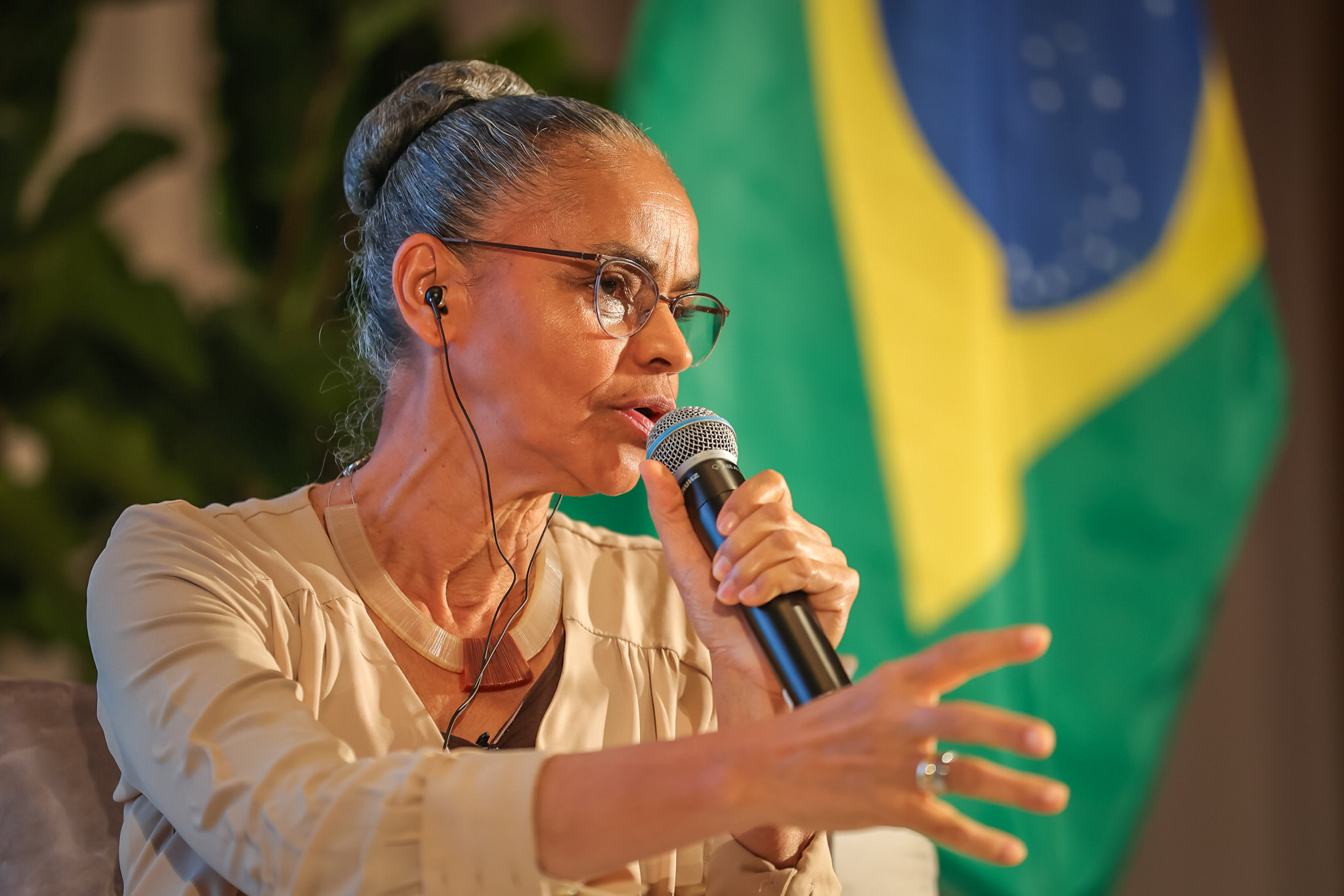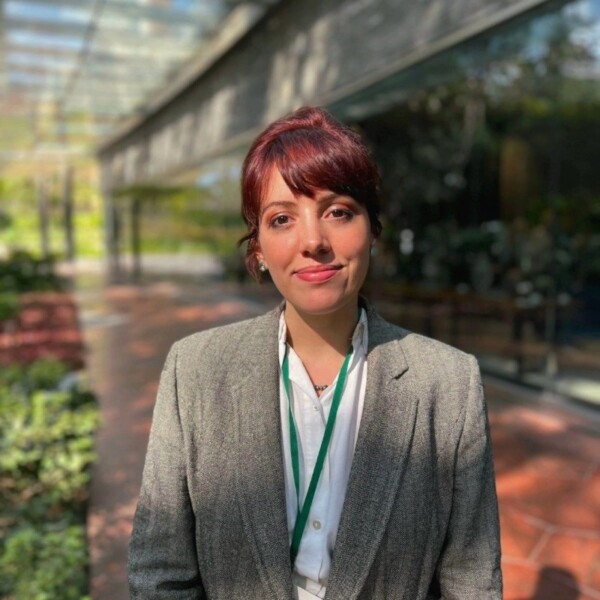Marina Silva, of Brazil, speaks COP 30 success: ‘Society and science are doing their part. Governments and companies are the ones who need to step up’

Photo: Diogo Zacarias/Brazil Ministry of Finance
Brazil’s Minister of Environment and Climate Change, Marina Silva, sits down with Nature4Climate to discuss her ambitious vision for COP30. Silva outlines Brazil’s plans to unify the three Rio Conventions and commitments on biodiversity, desertification, and climate change at COP30.
Home to 60% of the Amazon, Brazil is poised to pinpoint Belém as the epicentre of nature’s COP. Alone, the country holds more than 5% of the world’s carbon emissions mitigation potential by applying natural climate solutions, presenting a unique opportunity to set sustainable agriculture and nature-based solutions standards worldwide.
Silva also sheds light on Brazil’s innovative ‘socio-bioeconomy’ model, designed to transform agriculture, preserve traditional cultures, and drive climate and biodiversity action while generating jobs and fair compensation. By fully developing the socio-bioeconomy, the GDP of the Brazilian Amazon could increase by BRL 40 billion annually, achieving zero deforestation and restoring 24 million hectares of forest by 2050.
In this interview, Marina Silva discusses the Brazilian concept of bioeconomy, the challenges of scaling it, and the pivotal role of COP30 in setting a path towards more resilient economies:
Read more
Related articles for further reading
Nature4Climate: What are the Brazilian government’s expectations for COP29, and what implications do these have for COP30, where Brazil will be the host?”
Marina Silva: At COP28, we were left with a promised $100 billion fund, commitments to triple renewable energy, debates on doubling energy efficiency, and a transition plan to phase out fossil fuels. I consider this an advance because, after 31 years of climate conventions, we finally addressed the root of the problem: coal, oil, and gas.
Now, the main challenge of COP29 is implementing the means to achieve the 1.5°C target and address the loss and damage agenda. This means discussing the financial resources promised since the Paris Agreement, which have not yet been provided, along with other necessary efforts developed countries need to mobilize to support lower-middle-income or low-income countries. This support is crucial for developing countries to make their energy and agricultural transitions and adapt to the challenges already imposed by climate change.
Regarding COP30, we have homework to set sufficiently ambitious NDCs (Nationally Determined Contributions) to meet the commitment of not exceeding a 1.5°C increase in Earth’s temperature and making the necessary shifts for the transition from fossil fuels. The troika established from COP28, composed of the United Arab Emirates, Azerbaijan, and Brazil, is already working on systems to achieve this.
Additionally, a COP in the Amazon challenges us—and we have set this challenge for ourselves—to create synergy between the three conventions: biodiversity, climate, and desertification. What is good for the climate is good for biodiversity and desertification, and vice versa.
Nature4Climate: Is it ambitious to say that COP30 will be the Nature COP?
Marina Silva: All COPs have been nature COPs. It can’t be any other way. If we created a convention to combat desertification, it was precisely to protect nature. If we established a biodiversity convention to prevent the loss of countless species that are becoming extinct or have already gone extinct, that is about nature. And if we have a COP to address climate change, which is a kind of Armageddon for living nature, then it is a nature COP. They have always been nature COPs.
Nature4Climate: What can civil society and NGOs do to keep nature-based solutions on the discussion table, so we reach COP30 with nature at the heart of climate strategies?
Marina Silva: I believe that society is already doing its part. As the problem worsens, society intensifies its mobilizations and has developed an incredible capacity not only to denounce issues but also to formulate and present solutions. Increasingly, social activism is based on science and evidence. Many solutions are coming from pilot projects carried out by communities with the support of some NGOs.
However, unfortunately, more than 30 years have passed since the first Rio Conventions, and because we have not observed the precautionary principle and taken all necessary measures regarding the three conventions, we now face terrible disasters with widespread desertification, biodiversity loss, and climate disruption.
I often say that society is doing its part, and science is doing its part. The ones who need to step up are the governments and companies.
Nature4Climate: When we talk about companies and governments doing their part, it’s inevitable to discuss financing Nature-based Solutions (NbS). Brazil, in particular, has been focusing a lot on the bioeconomy. What is the concept and bioeconomic agenda advocated by the Brazilian government?
Marina Silva: We need to see nature as the solution to many of the problems we face, with biodiversity at the core of it all. Respecting nature helps solve problems and prevents the creation of new ones related to CO2 emissions, such as deforestation and the excessive use of natural resources like coal, oil, and gas. All the answers are already in nature whether by transforming it to enhance solutions or preserving it to maintain ecosystem services.
Having this in mind, when talking about the bioeconomy, there is still no unanimous definition among G20 countries, not even among the megadiverse ones. However, Brazil adopts a concept that includes both nature-based solutions, utilizing the knowledge of traditional populations associated with natural resources, as well as innovations from modern industry.
The bioeconomy is a means of physical, material, cultural, symbolic, and spiritual survival for many indigenous peoples, especially in a country like Brazil, which has more than 200 different groups. But the bioeconomy is also a response to modern production processes. For example, many new medicines are being developed from active principles found in nature– and we have not yet explored even half of our potential! Tucumã oil, for example, is essential in both the cosmetic and food industries. Baru from the Cerrado, as well as bacuri, abil, ingá, tucumã, pama, and guariúba, are examples of biodiversity products that are not yet widely studied but have great nutritional, healing, and economic value.
But beyond these two approaches, it is crucial to understand that the bioeconomy is a pillar of a resilient economy that preserves biodiversity, forests, and the traditional knowledge of populations. Brazil is developing a national bioeconomy policy and plan, understanding that, even if the names may vary, the important thing is that the results benefit nature and quality of life.
Nature4Climate: Considering Brazil’s NDCs and the global climate targets, what is the role of the bioeconomy and its importance in Brazil’s Ecological Transition Plan?
Marina Silva: The bioeconomy holds a significant role. In fact, it always has, even before it was called bioeconomy. For a long time, Brazil nuts and rubber were the economic backbone of the Amazon, accounting for about 30% of Brazil’s trade balance. However, there was no concept of environmental and social justice, and the rubber tappers, who were the workforce of the extractive industry, were exploited under semi-slavery conditions.
This new cycle of prosperity aimed at the ‘sociobioeconomy’ should leave no one behind. Indigenous peoples, rubber tappers, coconut breakers, jarazeiros, babaçu nut collectors, traditional fishermen, and family farmers, who heavily depend on nature, must be included.
For Brazil’s climate target, the bioeconomy has a significant role, but it should not be seen as a panacea. There is no single solution to the climate change problem. We need to continue mitigating, adapting, and preparing for the extreme climate events that are already happening. Most importantly, we need to transform our unsustainable economic models into more resilient ones.
Nature4Climate: What are the obstacles to scaling the bioeconomy as a solution?
Marina Silva: We are talking about several factors simultaneously. The economy that emerged from mercantilism and the industrial revolution imagined it could supplant nature-based economic solutions. However, for developing countries, about 70% of the food security for vulnerable and traditional populations in Asia, Africa, and Latin America comes from the bioeconomy and biodiversity.
For this new economy to scale, the first thing is to observe the carrying capacity of ecosystems. If we want 10 billion people to consume açaí, for example, this could lead to large-scale monoculture. We need to adopt a cultural and dietary re-education standard that respects the carrying capacity of ecosystems, even when intensifying species that can be intensified. Our consumer society wants things at the moment of desire, anxiety, and according to its gastronomic values. But nature doesn’t work that way. In the forest, there is a time for açaí, a time for tucumã… There is nature’s time. We create genetic improvement processes to make these products available all the time. If we truly want nature-based solutions, we need to respect natural limits.
That said, to scale the bioeconomy, we lack financing, technical assistance, and sanitary safety protocols. Developed countries often do not accept bioeconomy products, citing a lack of sanitary safety. Additionally, there is a lack of market access. It is very difficult to place socio-biodiversity products from Latin America, Africa, and Asia in the markets of developed countries.
These limitations include sanitary issues and protocols that need to be better developed, as well as interests that keep certain market niches closed. Financial resources also face difficulties in moving from rich regions to poorer regions. Therefore, there are limits that can and should be overcome, always observing the carrying capacity of ecosystems.
READ MORE:
- Real economy and Indigenous leaders call on Colombia and Brazil to drive a ‘year of united action on climate, nature and food’
- Policy Tracker 2024: Only 33% of nature-related policies published since the Paris Agreement have allocated budgets
- The clock is ticking: finance sector deforestation action must now go mainstream
- What the Heck is REDD+ Anyway? Demystifying the Climate Movement’s Most Infamous Acronym
